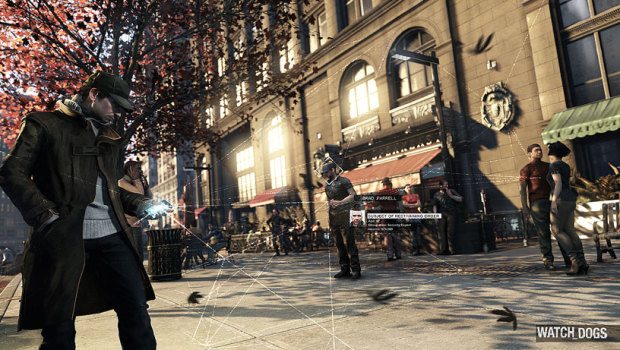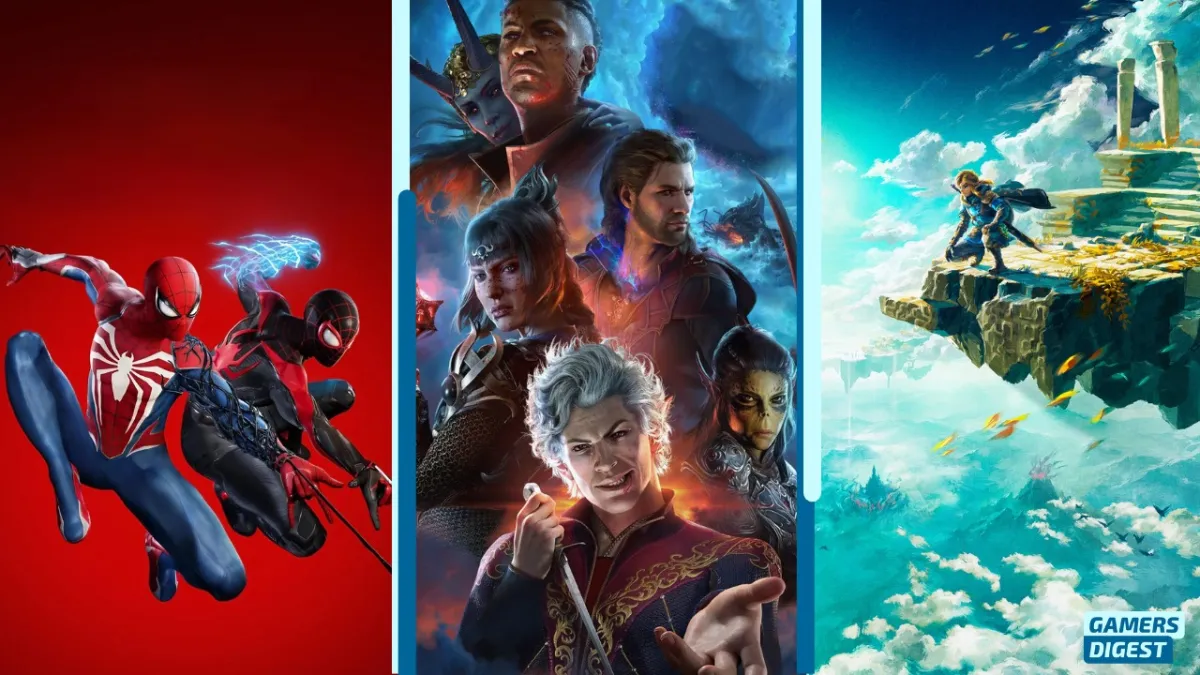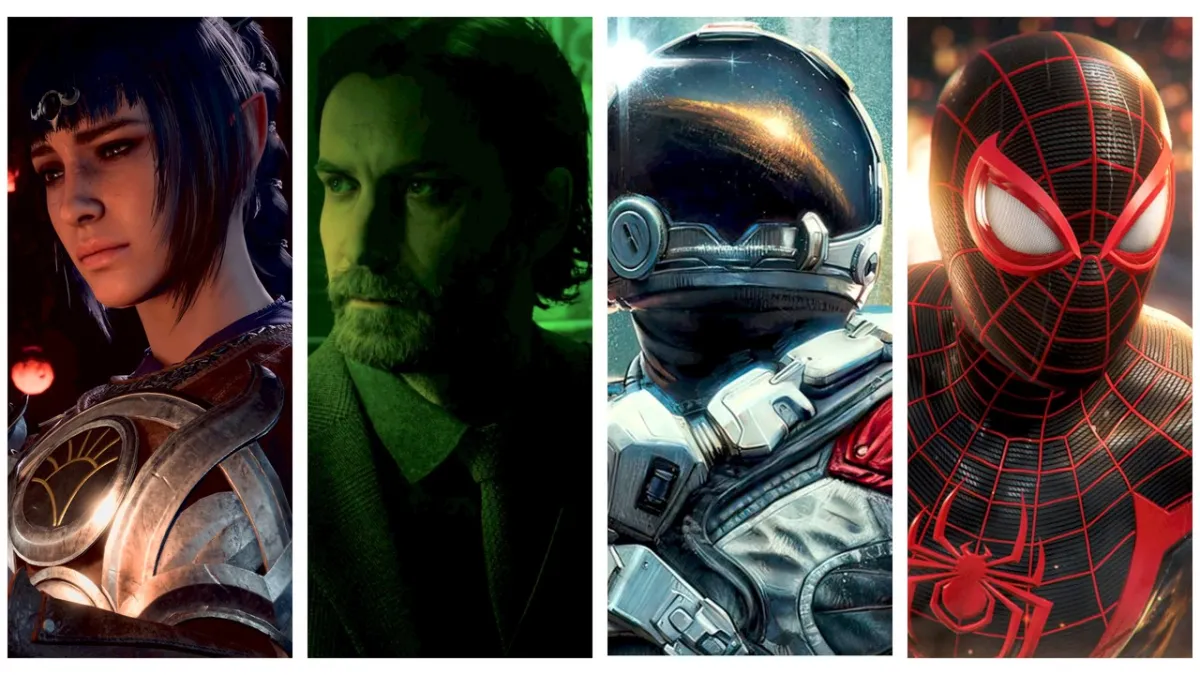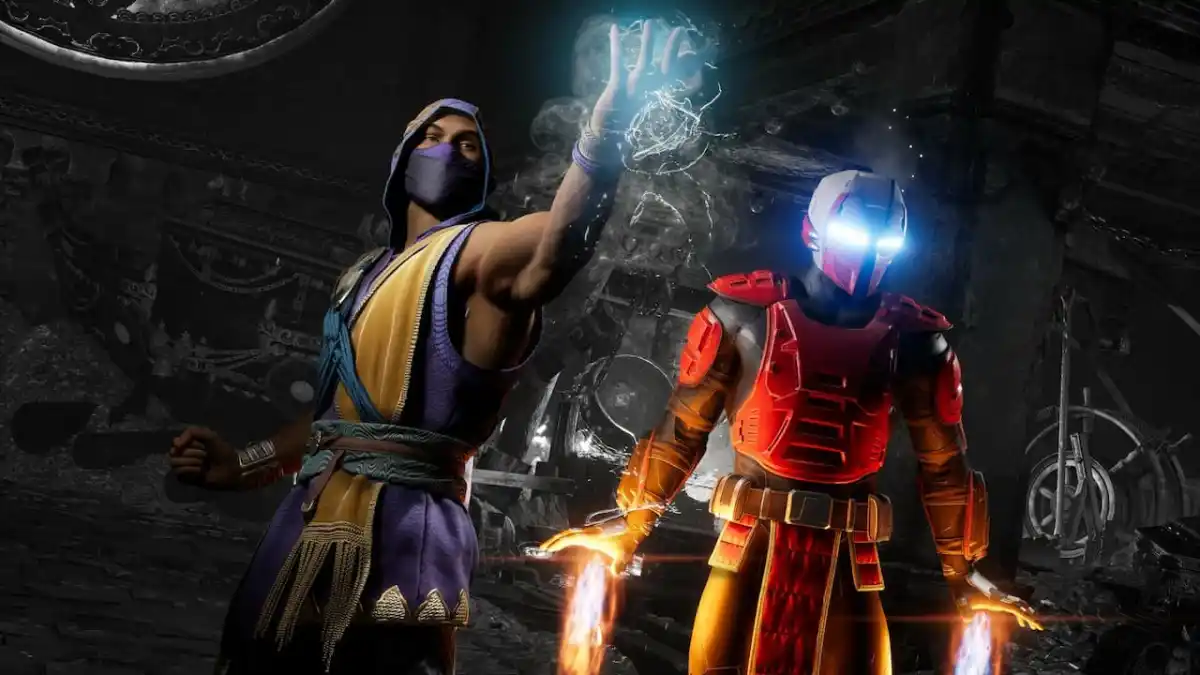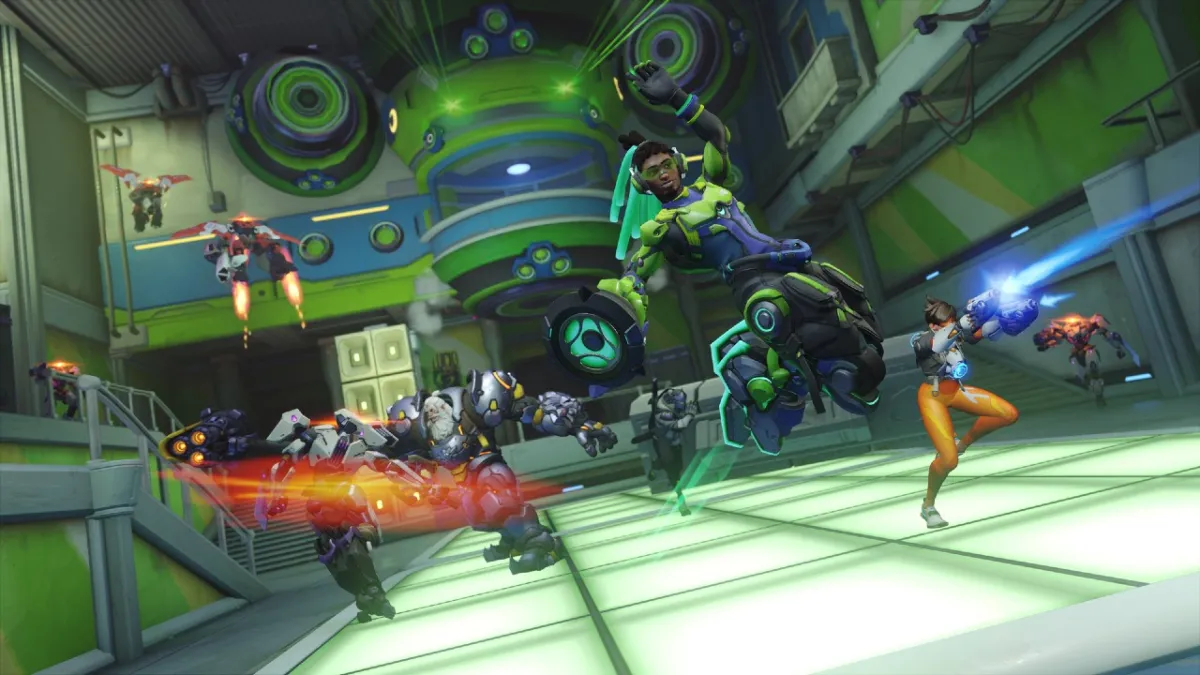As I sat in the beautiful Los Angeles Theatre awaiting Ubisoft’s E3 2012 Media Briefing last week, marveling the production values and electricity bill the mega-publisher would have to front after what amounted to a neon laser-light show, I had a revelation that surprisingly came before Flo Rida even stepped on stage: E3’s illustrious aura has diminished in past years.
It has nothing to do with media or community enthusiasm, and even less to do with the financial realm. The biggest companies in the industry spend heaps of cash on promoting their products at E3, and if it didn’t profit for them, they wouldn’t continue to do it year after year. The reason the biggest convention and event in the industry has lost its luster in recent years has everything to do with a more abstract concept.
Think about the last time an announcement at E3 surprised you. No, I mean really, out-of-nowhere, no leaked details in sight, jaw on the floor surprised you. Many of you probably won’t be able to recall such an instance. There’s a reason for that. Video game media have become increasingly akin to serving as PR firms more than journalistic platforms, and it’s nobody’s fault. Entertainment media are inherently designed that way. It’s a competitive field, and the first ones to the punch are the ones that generate the most traffic. So naturally, surprises are bad. Surprises mean that everyone is on an even playing field and traffic is available to all players putting out the same content. As such, leaks have become a customary practice in the gaming industry, and the routine of finding out everything before it’s “announced” won’t subside anytime soon.
So there I was sitting in the Los Angeles Theatre, watching countless blockbuster, AAA titles being demoed to raucous cheers from the audience. A knife kill here, a big explosion there, and audio so loud you could feel your crotch vibrating. Aside from ZombiU, Ubisoft’s press conference consisted of four sequels – Far Cry 3, Splinter Cell: Blacklist, Rayman Legends, and Assassin’s Creed III. And let’s face it, ZombiU’s setting and premise aren’t exactly novel concepts. But then something beyond our expectations took place. Ubisoft CEO Yves Guillemot came back out on stage posing an enigmatic message to the audience: “Who is really managing the world we are in?”
The lights dimmed. Using the real-world Northeast blackout of 2003 as a backdrop, the video began to detail a game’s setup. Raymond Kenney, a disgruntled employee, unleashed a virus that overloaded Northeastern power grids and shut them down completely. Within the game’s history, 2011 marked the installation of an advanced power system know as the “Central Operating System” (ctOS). The system manages power output for entire cities including its infrastructure. All of the city’s technology has been centralized under government control. Who controls such an ultimate, omniscient super-computer? Private companies interested in stockpiling personal data, putting you under the complete subjugation of those able to turn your devices against you.
Then the camera slowly zooms out on a man with a hat and flowing jacket. Rather than zooming out dramatically to an overhead shot of the city which would lead to the game’s title, the camera became fixated in a third-person view. I could have sworn I was still watching a cinematic. What I was watching instead was a glimpse into the future of gaming as a medium and form of interactivity.
Rarely, if ever, does a game within the first seconds of in-game footage possess the power to truly “wow” those watching. The protagonist wasn’t taking out a convoy of drug dealers with a single grenade nor was he jumping off a skyscraper as he desperately tried to dive the gap into the getaway helicopter. I watched in awed jubilance as the protagonist simply walked down the street. Garbage and stray leaves gently brush the concrete as they blow by. An incredibly realistic dynamic lighting scheme casts a golden gleam upon the street, creating believable shadows even among the most commonplace of objects. Everything from the swaying trees to the brightly lit theater is rendered in stunning, almost implausible detail. He crosses the street toward the theater and we’re shown the most astonishing NPC physics to date. Facial animations, unpredictable responses to their environment, even their dialogue showcased a new age in gaming AI, one that may mark a turn in treating in-game NPCs less like pixilated obstacles and more like tangible human beings.
Needless to say, I was wowed when the lights returned. Judging by the rest of the audience’s reaction and the explosive applause that filled the Los Angeles Theatre, everyone else was pretty impressed, too. Part of me heartily admired the game for its jaw-dropping graphics alone. Another part made me wonder if the real reason as to why I cheered so vigorously had to do with the fact that I was genuinely surprised. Indeed, that was undoubtedly one such aspect that every journalist in attendance took into consideration. They had just been misdirected. They’d been lulled by high-octane sequels and then suddenly side-swiped by something entirely new and invigorating, yet every single audience member was too pre-occupied with euphorically picking their jaws off the ground to be offended. The scene highlighted one very evident and altogether unfortunate fact: many in the gaming media were so ecstatic to know nothing about an E3 reveal that they were ready to crown Watch Dogs their Game of the Show on that basis alone.
However, in my mind it’s disingenuous and insulting to the work that Ubisoft has done with Watch Dogs to proclaim that its reveal was special because it was surprising. Sure, the graphics were stunning and the announcement had journalists clapping with one eyebrow raised, though there’s less of a chance that current-gen consoles are capable of running that demo than England has of winning Euro (no disrespect to the Three Lions). Even with these two factors taken into consideration, Watch Dogs remains monumental and my Game of the Show for a completely different reason. Mainly, the concept of using and playing upon a global paranoia with technology itself, and making every citizen that utilizes it your central weapon.
The game puts players in the shoes of Aiden Pierce, a man driven by revenge with a knack for surveillance technology and the art of hacking. Rather than being trained in jiu-jitsu or boasting lethal knife skills, Pierce does his damage through the abstract subtleties of hacking technological equipment right from the convenience of his smartphone. We see him shutting off cell phone signals and jacking a traffic light to corner his next target. Ubisoft has assured us that what we saw in the demo was happening in real-time. In other words, if you wanted to cause GTA-esque destruction simply to watch the world burn, you could.
By use of info blurb pop-ups, the player has access to everything and anything that every single person they come across has done or been involved with…ever. The game’s concept of the ctOS master computer gives you control over an entire city’s infrastructure including street lights, public cameras, bridges, even public transport. Perhaps more importantly however, you’ll have unrestricted entry into every character’s personal data. Their job history, blood type, outstanding loans. Every character’s deepest and darkest secrets are at your beck and call – a horrifyingly conceivable concept considering the state of the modern digital age we live in.
The foundation of Watch Dogs is rooted in the single notion that all personal data and internet activity is interconnected. Pierce not only manipulates the technology that processes and stores such data, but he has the ability to manipulate the physical person that the data is connected to and represents. Though Pierce’s actions, data that would otherwise be abstract, seemingly inconsequential pieces of information becomes a cohesive blueprint as to how to break the person tied to those statistics and in turn, alter their life entirely.
Why is the idea of a game that allows players to do this so compelling? Because the very fabric that the idea consists of is embedded in our everyday lives. We’re not talking of an alien invasion or a zombie apocalypse. The notions that Watch Dogs presents challenge you to look around at the world you live in today, right now. As a generation that is incapable of anything but a life filled with instant gratification, one that cannot function without some form of entertainment or social media at their fingertips during every waking moment, we are ingrained to be consumed by technology.
Need directions to that restaurant? GPS on your phone will get you there. Can’t get that song out of your head and need to listen to it once more before work? Luckily your phone also holds your entire music library. We’ve reached a period in which technology is becoming less about facilitating our daily routines and making them easier than it is about consuming our very persona, assimilating it into a digital representation of our tangible selves. Technology follows us at every turn whether we like it or not. In this decade, there’s simply no escaping it.
You’ve heard about it on the news and read about it in the paper. The very select few companies that control a large portion of the World Wide Web are constantly seeking to provide a more streamlined user experience by “cross-referencing” data across all of your accounts under the jurisdiction of that company. What that means is that when you enter something into a search engine, send e-mails, watch videos on a user-upload site that are all monitored by the same company, all of that data is collected and stored into a single place to be kept on record.
Now before you go breaking out the tinfoil hats and furiously erasing your digital imprint, note that these mega-corporations have little to gain by examining what new cooking recipe the Average Joe is looking up on a day-to-day basis. If news broke that Google was tampering with its users’ internet history or sharing it externally, the profit would be miniscule in comparison to the shattered reputation and community backlash that would result from it. However, just because they don’t, doesn’t mean in any way that they don’t have the ability to. Everything you do digitally is out there, and it can in fact be accessed without your authorization. Even if the cross-referencing of personal data is used for the sole purpose of making highly tailored, specifically targeted ads for each person using that particular search engine, there’s still one fundamental privilege being undermined: user anonymity. What used to be sacred information available for your eyes only can now be tracked and collected to make your digital persona more “you” than it’s ever been before, and for some people, that’s a scary thought.
It’s the very same concept that Watch Dogs employs with the idea of the ctOS – a master computer system capable of storing every person’s personal and private data at all times. The game consists of you unlocking information that is not supposed to be in the public realm, and then utilizing that sacred info to manipulate and counter-act those tied to it. The companies that hold power and influence over every citizen’s digital life can correlate the information they have on you to find out more than simply the last movie you saw in theaters. They can associate it with your real-world perceptions and viewpoints, ultimately knowing not just who you are, but what you believe.
In this sense, Watch Dogs becomes more than a game that allows you to hack phones and devices amidst a personal quest for revenge. It highlights the realistic and quite ironic prospect that this digital age, one that is so often defined by the customization and personalization of social media, has actually depreciated individuality in a mass shift toward erasing each person as a unique entity and instead merging every single one into a vast constellation of data united by a singular digital network. Rather than the exploration of an environment or setting, Watch Dogs will require the player to explore one of the untapped initiatives yet to be fully surveyed within the gaming industry: the exploration of the human beings who inhabit it.
While most will consider the graphical prowess and fact that Watch Dogs is a wholly original IP as more than enough to garner the hype it’s currently receiving, I see its potential to push a controversial public perception while retaining its aptitude as a spectacular action video game. Of course, I’d love to see a flurry of new, non-sequel titles hitting store shelves within the next five years, but I also can’t deny my support of games as an artful medium. Games that blatantly promote current societal and political issues are few and far between in today’s industry, and I applaud Ubisoft for having the guts to tackle one even if the notion of a “Big Brother” government monitoring your every digital move may seem inconsequential to most. When Watch Dogs finally does arrive, be it on current-gen consoles or next, try not to be too distracted by its jaw-dropping visuals and sleek fighting mechanics. There’s an implication at the game’s core that you won’t want to miss.


